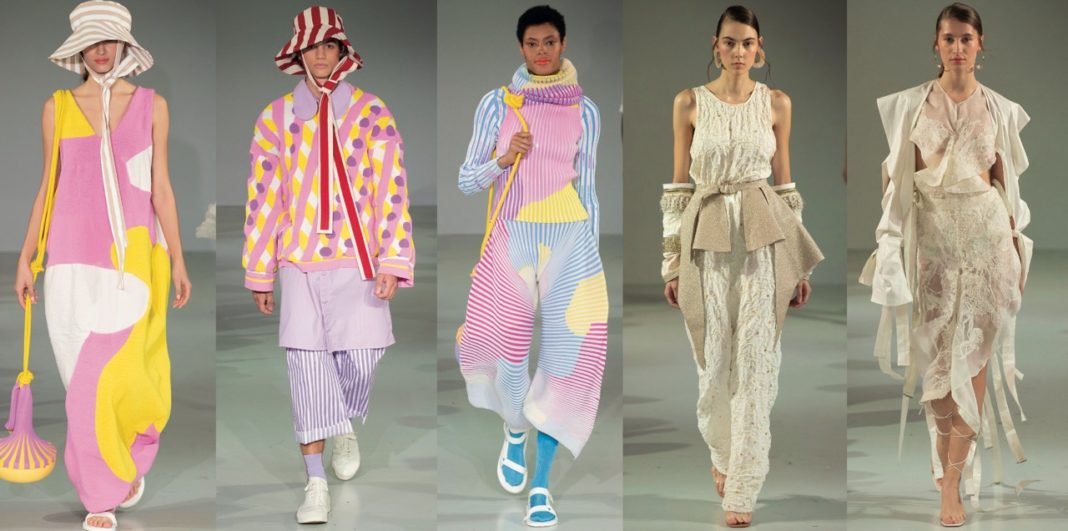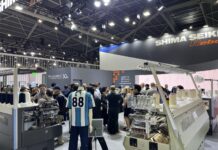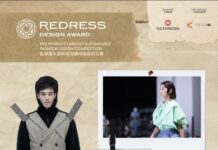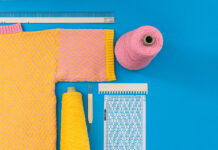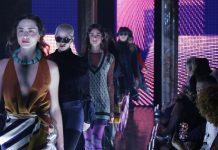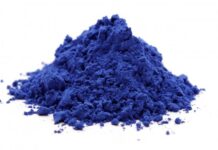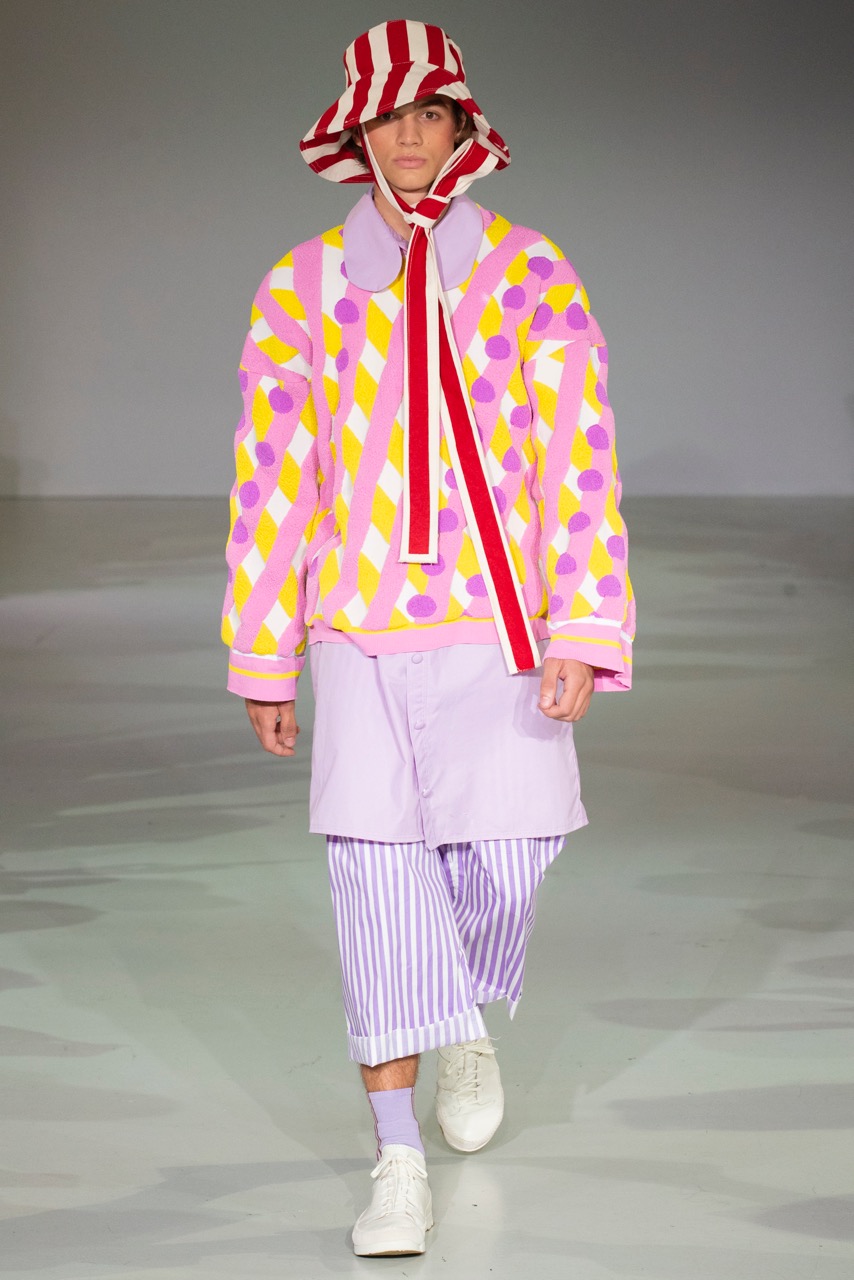
FJU talents is a platform within Fashion Scout that showcases up-and-coming designers from Taiwan. Each year, 4 designers are selected and receive support for their collections, including the opportunity to showcase their work with Fashion Scout at London Fashion Week. The support is funded by the Textile and Clothing Department of Fu Jen Catholic University (FJU), a leading institution based in Taiwan. Providing support and mentorship for their alumni, FJU helps new designers break out after their graduation into industry, presenting their innovative collections during Fashion Week.
FJU Talents first started this project in 2017, and with a selection process similar to that of Project Runway, they hold many selection processes from which they choose their 4 designers to support and showcase at LFW. Showcased within this article are two of the designers which FJU talents championed this year, Yu-Mei Huang and Wei-Yu Hung.
Yu-Mei Huang
Yu-Mei Huang’s vibrant knitwear collections have featured on KIC in the past, exploring the narratives behind her graduate collection and her Work in Progress Show. Catching up with Yu-Mei after her debut at LFW, her journey from MA to LFW documents an exciting creative journey.
What was the inspiration behind your debut LFW Collection?
“This collection is based on my work from my MA graduate collection. I developed my concept A Therapeutic Space into a more commercial and daily ready-to-wear pathway, developing knitting techniques that simulate the feeling of bubble-wrap with practical materials.”
What yarns and knitting techniques did you use?
“A new element of fabrication showcased in this collection is my experimentation with tubular jacquard structures. I interwove monofilament between front and back beds and used elasticated yarns to push the fabric to have more 3D volume. I also explored intarsia techniques and pushed the potential of techniques with different yarn choices. The yarns I trialed and utilised in my collection are a culmination of elastic, monofilament, polyester and polypropylene.”
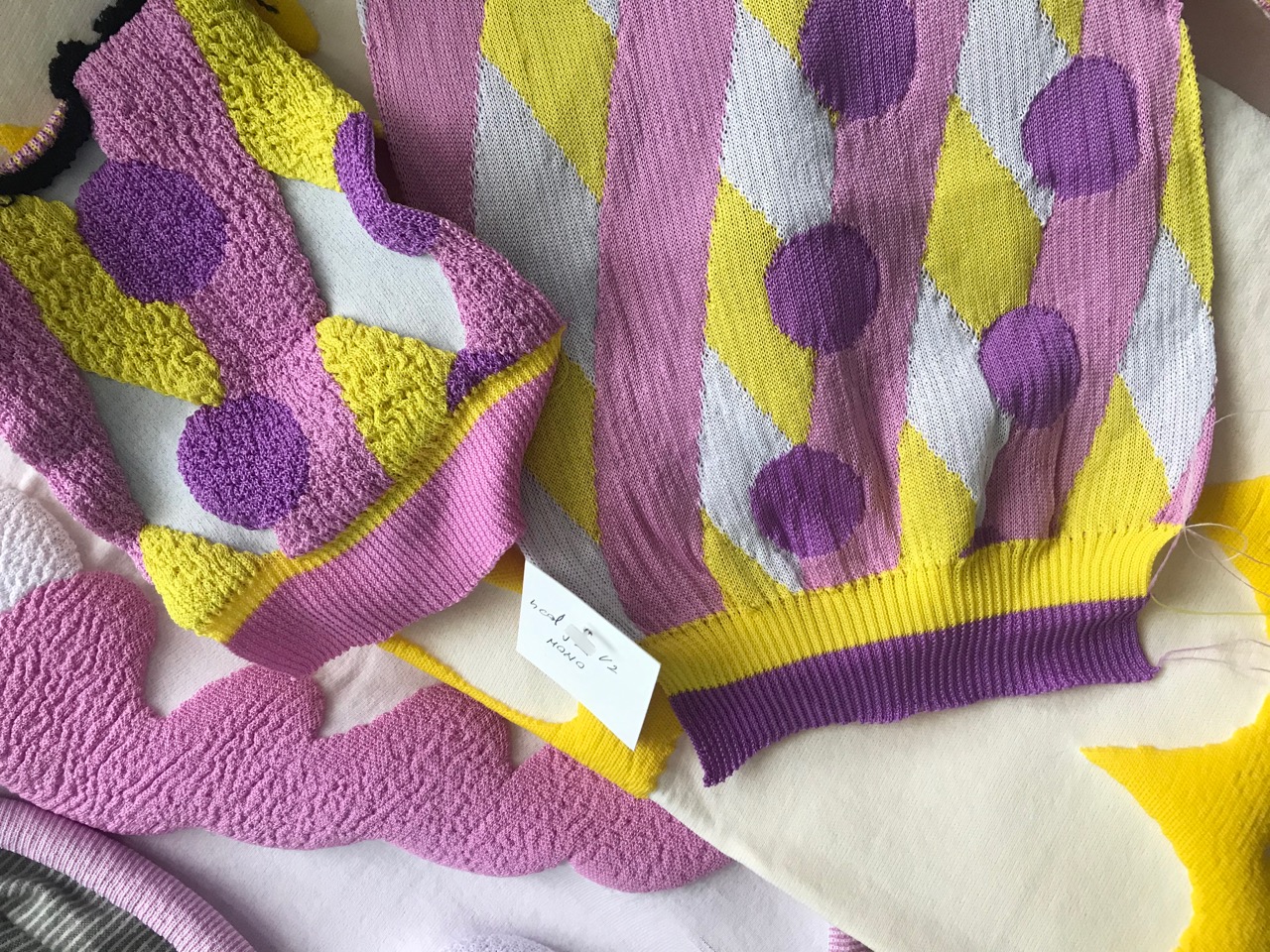
What was the biggest challenge in working towards your first showcase at LFW with FJU Talents?
“The timing! I was a late arrival to FJU talents- I only joined in August 2019, which pushed me really to work on my new looks in a very short space of time. Ideally I would have had more time for production. I had to work out logistical issues because university facilities are closed during the summer months out of term time, so it took me a while to find the place to knit and link my garments.”
What is your favourite look from your collection?
“It is honestly so hard to pick one favorite because they’re all my babies! Each element of every design was such a creative process that I feel very close to. The images contained in the article I would say represent my concept most holistically. I think these three looks express my concept in both conceptual but wearable ways.”
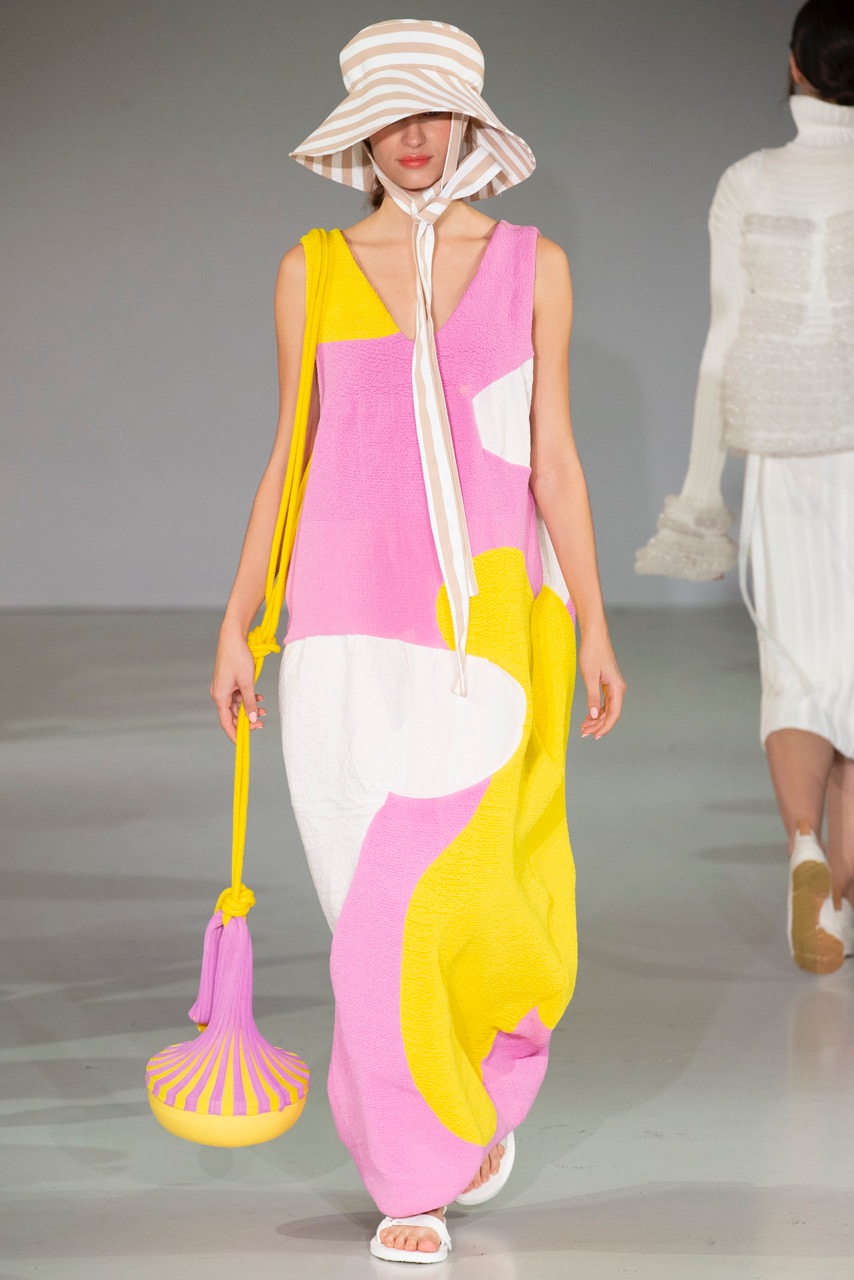
How was your experience with FJU Talents and Fashion Scout?
“It was absolutely my pleasure to work with FJU Talents. They provided funding for PR, venue, models and all the elements needed for a professional and LFW worthy catwalk show. I feel so lucky because as the designer all I had to focus on was my collection. FJU Talents took care of all the event logistics which I could not have done without them. This meant that I could develop my work creatively without any limitations and focus all my time on the garment creation process. The way that Fu Jen Catholic University supports their alumni is really amazing, I am so grateful for their support.
While I studied my BA at Fu Jen Catholic University I specialised in Knitwear Design. They have amazing facilities! Every student was provided with their own domestic and Dubied knitting machine in our studios. The course also offers five Shima Seiki Machines that students can use independently so we could get a lot of sampling done. We were also taught how to programme Shima Seiki machines during our BA which was a brilliant opportunity. Graduates from the course are therefore able to communicate with industry and factories as soon as we enter industry which gives us an edge that we are really lucky to have. FJU give a really broad education of knitted textiles, from craft to industrial methods which now that I have graduated has given me a specialised and varied portfolio.”
What’s next for you after such a successful show?
“I’ve had interviews with a few companies and I am waiting to hear the results which is exciting. I also have an exhibition in Taiwan with two fellow RCA textile alumni which runs from the end of November to December, which will be a great opportunity to showcase my collection again. In future I would like to collaborate with more designers from other disciplines and other craft backgrounds. It could push my work in interesting ways and show it from new perspectives.”
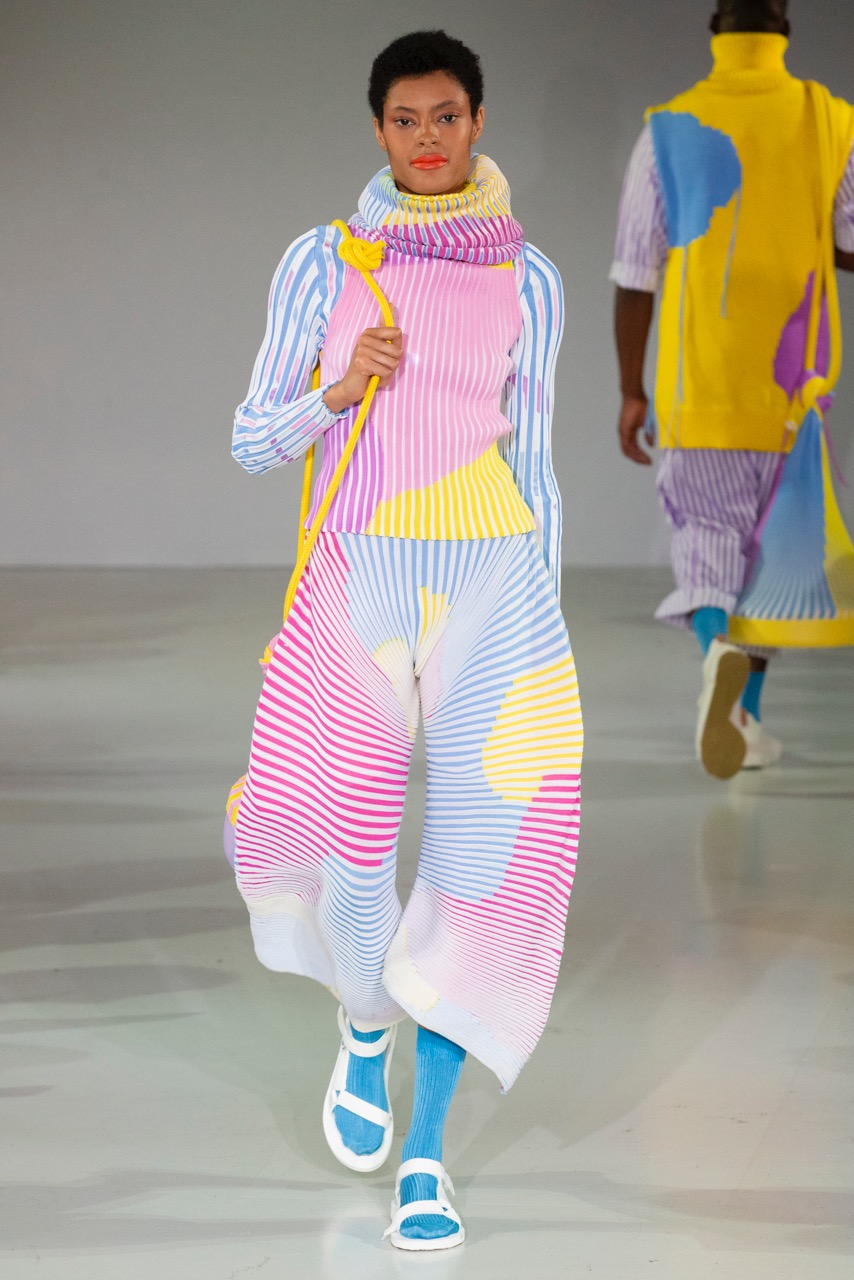
It is clear to see how Yu-Mei has pushed her creativity for her new collection. The vibrant colour palettes and unique silhouettes of her MA collection shine through, revealing her unique hand writing as a designer, yet the adaptability of her design abilities is also shown. Where her MA collection focused on sculptural forms and wearer interaction on a playful level, this collection has adapted into a more accessible collection of garments. The layering of fabrics and experimental stitch structures provide Yu-Mei’s signature sculptural elements, but the looks are refined for comfort and wear-ability. Yu-Mei’s progression into industry at her LFW debut has certainly been a success!
WEI-YU HUNG
Combining woven, knitted and crochet fabrics, Wei-Yu Hung’s mixed media approach to fashion design explores Circular Design and holds a sustainable ethos at its core. Based in the Netherlands, currently studying his MA at ArtEZ University of arts, Wei-Yu studied his BA in Fashion Design at Fu Jen Catholic University.

How would you describe yourself as a designer?
“I believe tradition is avant-garde, local is global. I try to transfer culture and old handcrafts into modern design and go beyond the exploration of humanities and traditional crafts to embrace the concept of sustainable fashion.”
What is the inspiration behind your LFW Collection?
“This collection is about interpretation from the symbol to the clothing. We have many languages to communicate with others, but there are always some barriers during the communication. When it comes to the fashion system nowadays, we lose the communication and close relationship behind the clothing, textile, and crafts. This is a pity because there are lots of beautiful stories and values contained within the textiles and clothing. I put symbols created from art therapy paintings into the clothing to recreate a slower interaction and turn the forgotten stories and handicrafts into sparks.”
How has your past informed your material choices and mixed media textile techniques?
“In the 2020 SS collection, I collaborated with the local community in the Netherlands to combine the crochet, knitting, embroidery, and beading with bark lace material to create a flowy texture with social consciousness and cultural inheritance.
I would like to share my personal story with you. My mum used to work with bark, the left-overs of the trees when I was a child. The only memory that deeply roots in my mind is that I sat beside her to see how she treated this treasure from our nature and made it into a whole new look. At that moment in time, I didn’t know this kind of normal daily life as my heritage. It was after working for quite some years as a professional designer that I found this to be important to myself and for this industry. Once I went back and saw my mother doing the hammering of the bark again, I realised that the most precious thing for me is to be surrounded by the sound of hammering, the smell of the tree bark and my family.”

With sustainability being such an inherent part of your process, what sustainable techniques do you use?
“The aim throughout the collection and material sourcing process was to take those materials which others thought useless or worthless and give them a new lease of life. Inspired by the memories of my mum’s handiwork with the tree bark, I work in a similar way. Bark lace is an Austronesian handicraft in which we use a hammer to stretch the fibre and water to wash the sap off. Bark fabric is an eco-friendly material without any chemical material added. Wood work industries cannot find a better way to deal with the bark waste, so it is an abandoned bi-product – a material that can be utilised by the textile industry in creative ways. You can also peel off the tree bark from branches after which the tree will recover by itself. So it can be seen as a continuous cycle from nature to life and back to nature to be decomposed by our land. It is an example of circular design.
I found there are huge amounts of leftover materials in textile manufacturing companies that sit unused and often go to waste. In this collection, I collaborated with SINGTEX, which is a leading sportswear and outdoor textile company in Taiwan. I also worked with UNITEX, which produces beautiful lace. With them we collected their leftovers after making a large scale of production.”
I collaborated with the Eco Textile Studio for the crochet and knitted fabrics, where we recycled secondhand saris by deconstructing them into strips for knitting.”

What has been your biggest challenge in working towards showcasing your collection at LFW?
“I think the biggest challenge is always how to find a balance between commercial thinking, social consciousness, and craftsmanship; these three values are at my core as a young designer and a human.
During LFW, I hope audiences will try to slow down their pace to listen to the stories behind the crafts and materials in the collections and try to see fashion in another way.”
How has Fashion Scout ant FJU Talents worked with you and supported you?
“Fashion Scout helped us with the casting, makeup/ hair testing, and show-related elements. They supported us and introduced our work to the media. It has been a real privilege to work with Fashion Scout and their work with me was invaluable.”

The attention to detail in the craftsmanship of this collection is commendable. To instill such narrative in every design decision, Wei-Yu takes a real responsibility for the impact of his collection on the planet, both socially and environmentally. His mixed media approach to fashion design, combining woven and knitted fabrics explores craftsmanship as well as social responsibility, which is a refreshing and admirable ethos to showcase during Fashion Week. It will be brilliant to continue to see Wei-Yu develop Circular Design solutions throughout his career.
Wei-Yu will present his extended collection from LFW during the Dutch Sustainable Fashion Week on 4 October in Amsterdam, aiming to communicate on an immersive level with the public.

Subscribe To Our Newsletter
Join our mailing list to receive the latest news and updates from our team.


